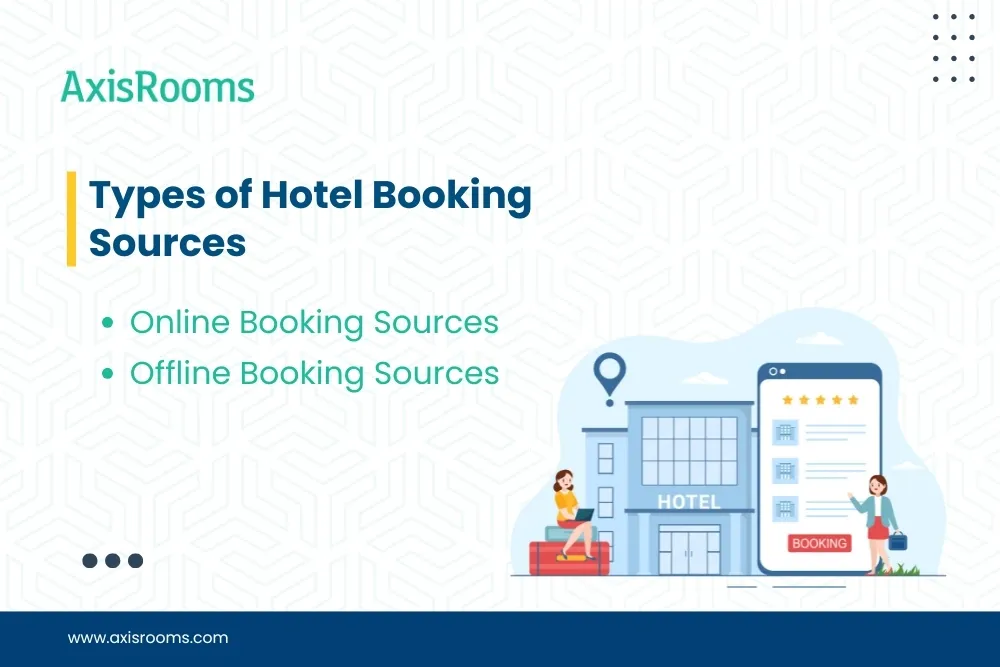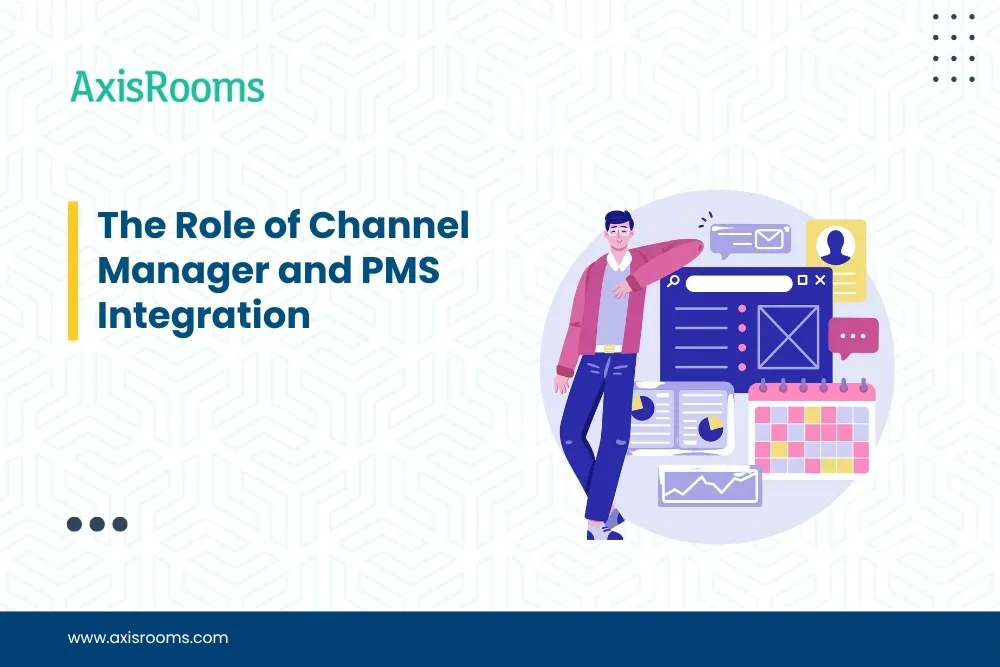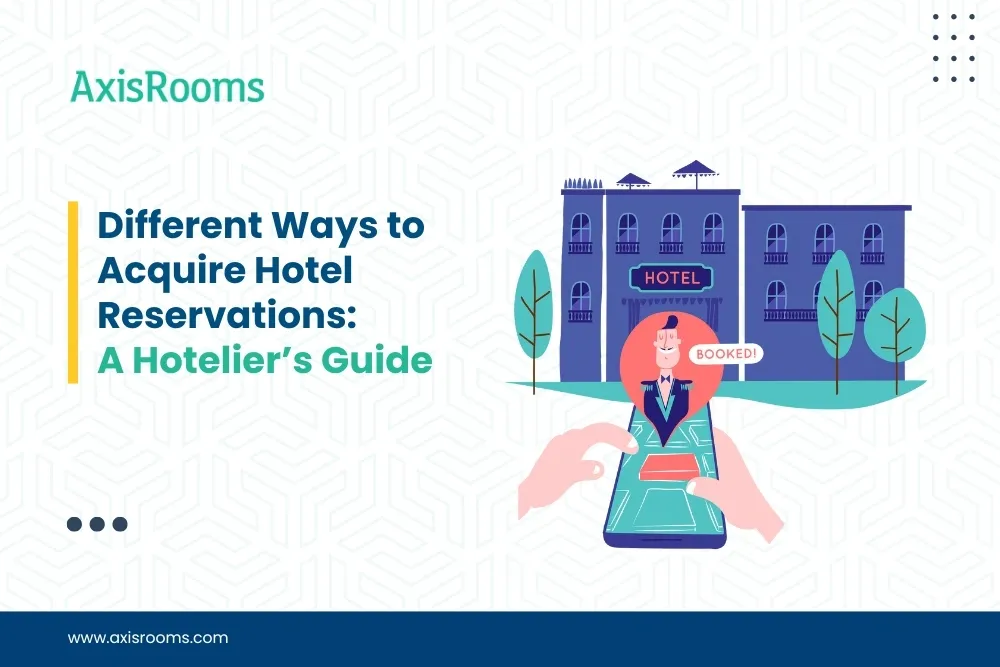Hotel Reservations Today Are No Longer Simple
For today’s hotelier, managing reservations isn't just about answering calls or handling walk-ins. It’s about ensuring visibility and control across a growing number of online and offline channels—ranging from OTAs and metasearch platforms to your direct website and offline travel agents.
Let's be honest – the scale of this challenge is staggering. In 2023, a large majority of travelers (72%) preferred to book their trips online, compared to only 12% that preferred using a travel agency. This shift isn't just a trend; it's a fundamental transformation in how guests discover and book accommodations.
This change in booking behavior presents several operational challenges:
- How do I prevent overbooking across different channels?
- How can I identify which booking sources are performing best?
- How do I maintain accurate inventory and rate parity across platforms?
The solution lies in consolidating all your booking sources into a centralized reservation system that ensures seamless management, real-time updates, and cross-functional coordination. Let’s explore the full range of hotel reservation sources—and how you can manage them efficiently using modern hospitality tech.
1. Why Managing Reservations Is Now More Complex
Today, hotel bookings come from a variety of channels:
- Direct website or app bookings
- Online Travel Agencies (OTAs)
- Metasearch engines
- Phone calls
- Walk-ins
- Offline travel agents and DMCs
This variety creates complexity in operations and can lead to:
- Double bookings or underutilization
- Inventory mismatches
- Delayed guest confirmations
- Manual errors and communication gaps
Without a centralized system, hoteliers end up switching between multiple extranets, spreadsheets, and front desk logs—slowing down response time and impacting guest satisfaction.
2. The Solution: Centralized Reservation Management (CRS)
A Central Reservation System (CRS) helps simplify and unify all reservation sources—digital and traditional—into a single operational window. It acts as a central command center for managing bookings, updating rates and availability, and generating performance reports.
3. Benefits for Hotel Departments
Every hotel department benefits from centralizing reservation processes:
4. Types of Hotel Booking Sources

Understanding your booking sources is key to optimizing channel mix and maximizing profitability.
A. Online Booking Sources
These include digital platforms that allow guests to book remotely:
i. Direct Online Bookings
Made through your hotel’s official website or mobile app.
Benefits:
- Zero commission costs
- Complete control over policies and pricing
- Strengthens guest relationship with your brand
Case Study: Direct Booking Revenue Advantage
In terms of revenue, hotel websites in the UK generated an average of £403 per booking in 2024, outperforming all other booking sources. This amount was more than 60% higher than the average revenue per booking via online travel agencies (£249).
Requirements: Mobile-optimized website + Integrated Booking Engine + PMS
ii. Indirect Online Bookings
While indirect sources offer broad reach, they also incur commission fees (typically 12–25%) and demand real-time updates to avoid inconsistencies.
B. Offline Booking Sources
Offline channels are still relevant for many market segments, including:
- Corporate and group bookings
- Guests in Tier 2 or Tier 3 cities
- Senior travelers who prefer direct communication
Examples:
- Walk-in guests
- Reservation phone calls
- Email inquiries
- Offline travel agents and DMCs
These need manual entry into your PMS or CRS, making integration essential for avoiding overbookings and ensuring inventory accuracy.
5. The Role of Channel Manager and PMS Integration

- A Channel Manager for real-time rate and inventory updates across OTAs
- A PMS for syncing reservations with check-in, billing, and housekeeping functions
Why It Matters:
- Eliminates human error from manual updates
- Maintains rate parity and inventory consistency
- Automates confirmation emails and operational tasks
- Enables consistent guest experiences
Hotels without these integrations often face increased staff workload and lower guest satisfaction due to delays and miscommunication.
6. Product Spotlight: AxisRooms CRS
AxisRooms offers a robust CRS platform built specifically for hotels and chains looking to streamline multi-channel bookings, boost occupancy, and reduce dependency on manual processes.
Whether you're an independent boutique hotel or a mid-sized group chain, AxisRooms ensures your team spends less time updating extranets—and more time delivering guest excellence.
Final Thoughts: Simplify to Scale
As booking sources diversify and guest expectations become more immediate, relying on manual reservation methods is no longer sustainable for modern hotels. Fragmented systems often lead to overbookings, missed opportunities, and poor interdepartmental coordination—ultimately affecting guest satisfaction and revenue.
Adopting a centralized approach with a cloud-based CRS, integrated channel manager, and PMS allows hoteliers to manage reservations with real-time accuracy, analyze booking source performance, and streamline operations. The result? Higher efficiency, stronger distribution control, and a better guest experience—all of which contribute to sustainable growth.
At the same time, this integrated model supports more efficient revenue management strategies for independent hotels, aligning reservations with pricing decisions and occupancy trends. And when paired with a well-planned hotel marketing strategy, hoteliers can attract the right guests, at the right time, on the right platform.




